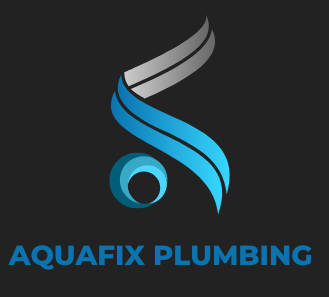Durban water heater corrosion
Coastal living in Durban offers breathtaking views and year-round warmth, a true South African paradise. However, this beautiful environment presents unique, accelerated challenges for your home’s geyser and plumbing system. High humidity, persistent salty air, and the specific hard water mineral composition in our local supply actively conspire against your water heater’s longevity. This combination accelerates the natural process of metal corrosion. You might find your Durban geyser leaking far sooner than friends living inland. As local plumbing specialists, we understand the specific pressures coastal elements place on your water heating unit. Our blog guide promises to deliver practical insights and actionable prevention tips for homeowners, helping you protect your property and your investment in KwaZulu-Natal.
The Role of Coastal Climate in Water Heater Damage
The ocean air brings with it an invisible, potent enemy: salt-laden moisture. This moisture aggressively attacks the metallic components of your water heater tank, causing them to break down significantly faster. This destructive process is known throughout the industry as salt corrosion or marine atmosphere corrosion. Even fittings and internal tank walls—despite protective linings—often succumb to this constant, corrosive assault. Homes situated right along the beachfront or in high-exposure coastal Durban suburbs like Umhlanga, the Bluff, and Amanzimtoti experience this damage most intensely. Consequently, these systems often suffer geyser leaks and failures much earlier than equivalent units in areas less affected by the sea breeze. Ignoring the impact of this unique environment always proves costly for property owners.
Warning Signs You Shouldn’t Ignore
Catching a geyser leak early drastically reduces subsequent repair costs and prevents major water damage to your property. Be extremely vigilant about inspecting the area around your water heating system.
- Puddles or damp spots near the base: This is the most obvious sign, indicating water has escaped the geyser tank or a fitting connection.
- Rust-coloured water: When you turn on your hot tap, water that looks rusty indicates the inside of your tank is actively corroding.
- Popping or hissing sounds: These often come from sediment buildup, signaling that the heating elements are struggling and possibly overheating the tank base structure.
- Irregular heating or pressure: A significant drop in hot water supply or fluctuating pressure can indicate a major internal breach or a safety valve failure.
💡 Tip: Small leaks today often turn into major, costly replacements tomorrow—act early!
Preventing Leaks in Durban’s Coastal Climate
Proactive, informed maintenance is the single best way to protect your geyser in the challenging Durban environment. Do not wait until the corrosion damage is already done.
- Schedule annual geyser inspections and flushes: Have a local Durban plumber flush the tank annually to remove sediment. This simple maintenance step greatly extends unit life and preserves the warranty.
- Use corrosion-resistant materials: When replacing your unit, choose coastal-grade water heaters with thicker glass linings or heavy-duty anode rods. Higher quality parts will provide durable performance.
- Install a pressure regulator: This inexpensive device protects your tank and plumbing from damaging high water pressure. Consistent pressure minimizes unnecessary stress on internal parts.
- Ensure proper ventilation: A well-ventilated water heater space reduces ambient humidity significantly. This simple airflow adjustment slows external corrosion from salt air.
Check out The Spruce’s guide to repairing an electric water heater
When to Call a Local Durban Plumber
While preventative measures are essential, some issues move quickly beyond the realm of DIY fixes. Extensive rusting at the base of the tank or a constantly running T&P valve are clear, urgent signals to call an expert. You need a trusted local team who knows the specific challenges of water quality, high pressure, and sea air in Amanzimtoti, La Lucia, and across Durban. Our experienced, certified technicians understand the common failure points specific to coastal KZN plumbing. We offer guaranteed fast response times and transparent pricing, ensuring you get a reliable, long-term solution, not a cheap, temporary fix. We are here to keep your home safe, dry, and your hot water flowing reliably.
Need urgent help with a leaking geyser? Contact our trusted Durban plumbing service for water heater maintenance before small leaks turn into major replacements. Our local specialists are ready to provide fast, reliable service in your suburb.
Conclusion: Protect Your Water Heater, Protect Your Home
Your water heater works tirelessly against the aggressive elements of Durban’s coastal environment. We’ve highlighted the key causes of failure, from salt corrosion and damaging water pressure to internal sediment buildup. As a savvy homeowner, you can take control of the situation today. Embrace proactive maintenance, including annual flushing and professional inspections from a local expert. Protect your water heater, and you protect your home from sudden, costly water damage. Don’t wait until the summer humidity and high-demand heating cycles worsen existing issues. Take action now to secure your hot water system.
If you’ve noticed any dripping or unusual moisture around your water heater, it’s important to take action before a small leak turns into a costly repair. Learn how to prevent leaky water heaters and keep your home safe and dry.


Recent Comments